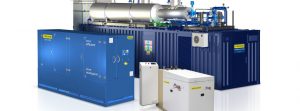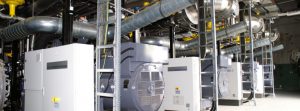The recently accomplished Paris agreement saw scores of world leaders set out their pledges to follow the United Nations Framework Convention on Climate Change (UNFCCC), governing carbon dioxide reduction measures from 2020.
 Coinciding with this is the recent Circular Economy initiative by the European Union Commission, which sees revised legislative proposals on waste with a view to stimulating Europe’s transition towards a circular economy, or in other words, as opposed to the historical approach to consumption, the European Union will strive to move towards keeping more resources in use for as long as possible.
Coinciding with this is the recent Circular Economy initiative by the European Union Commission, which sees revised legislative proposals on waste with a view to stimulating Europe’s transition towards a circular economy, or in other words, as opposed to the historical approach to consumption, the European Union will strive to move towards keeping more resources in use for as long as possible.
Ireland has also announced recently that it will eliminate fossil fuels from its energy system by the end of the century and has outlined plans to cut it’s carbon emissions by 85-90 per cent by 2050, compared to 1990 levels. So this year there really does seem to be an air (pardon the pun) of change in relation to the way we treat the environment.
For shentongroup, 2015 has been a very busy year. We opened offices in London, taking us up to 5 locations across the UK and we saw more and more organisations approach us for advice on uninterruptible power, as the National Grid closed more older coal power stations. With newer, greener power plants being commissioned at a slower rate, National Grid power reserves plummeted to their lowest in recent years, meaning that businesses are turning to shentongroup’s standby generator solutions and Power Call emergency generator service.
 The coming months and years really will see larger organisations striving to lower their carbon footprints and combined heat and power systems are an effective solution to consider. With over 60 CHP plant sizes available, CHP fuel options include; natural gas, LPG, biogas, vegetable oils, biodiesel, PPO, as well as mineral diesel. A very significant factor is the harnessing of heat from the electricity generation process for hot water and heating, bringing larger organisation with greater hot water demands savings and carbon reductions, something we are looking forward to helping scores of organisations achieve well into 2016 and beyond.
The coming months and years really will see larger organisations striving to lower their carbon footprints and combined heat and power systems are an effective solution to consider. With over 60 CHP plant sizes available, CHP fuel options include; natural gas, LPG, biogas, vegetable oils, biodiesel, PPO, as well as mineral diesel. A very significant factor is the harnessing of heat from the electricity generation process for hot water and heating, bringing larger organisation with greater hot water demands savings and carbon reductions, something we are looking forward to helping scores of organisations achieve well into 2016 and beyond.
shentongroup provides a free of charge whitepaper entitled “When is CHP the right renewable energy choice?” which is downloadable here!
For advice on continuous power and on how you can reduce your organisation’s carbon footprint by adopting CHP, speak to a member of the shentongroup team now (click)!

